What is the most often asked question about Travel Photography?
Table of Contents
How do I choose the Best Travel Camera?
You know the situation. You are ready to hit the road for that next great adventure and you want to get great images to share with your friends, but you are not sure what is the best camera for your travels.
This is a common dilemma for many people. With the rapid advancement and the ever changing world of digital technology it is easy to get confused and frustrated when looking at all of the options out there.
I too have been in that situation. Spending endless hours scouring the internet for the latest and greatest camera’s, pouring over the reviews and asking everyone what, in their opinion, is the best travel camera. After gathering this information I somehow found myself no further ahead than when I started. There was too much information, too many choices etc.
How I Choose My Camera Gear
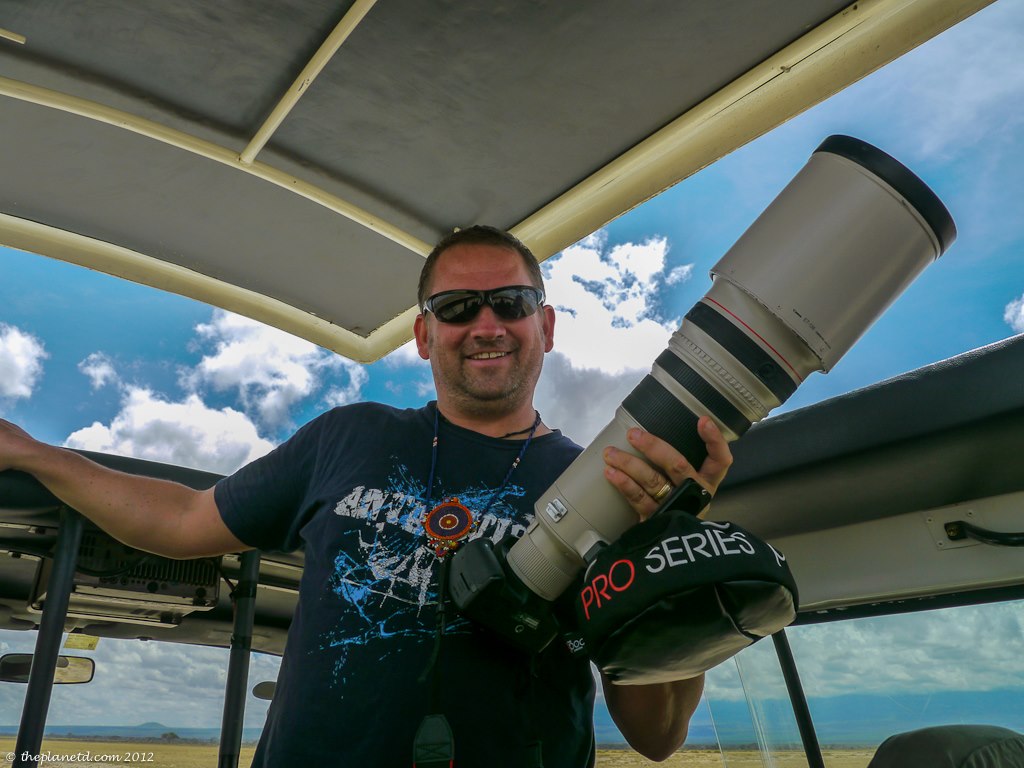
After many years of putting myself through the same routine, it dawned on me that I need to simplify the process. I started my search with a criteria already in mind. I sat down and analyzed what I really wanted out of my digital camera and how I could best adapt it to the specifics of traveling.
Buying a digital camera for use in your own back yard is one thing but buying one to trudge through the desert, summit a mountain or go on Safari is a different thing all together. After careful thought and looking at the experiences I had been through I came up with these questions that will give you a starting point when wading into the unpredictable waters of buying the best travel camera for you.
Questions to ask yourself before buying your next travel camera:
1. How do You Travel?

This is a big one. If you are going to a resort, on a tour or a supported trek you will be able to bring pretty much whatever you want. But if you are like me, always on the road, traveling buy local transport, trekking over mountains, through forests and interacting with local people you need to be choosy. In this case you should be looking for something that travels light and is not too cumbersome or awkward to handle. You might want to look at mirrorless cameras for this type of travel. Here are my recommendations:
Mirrorless Cameras:
Sony A Series
Fuji XT-1
2. Where are You Traveling?
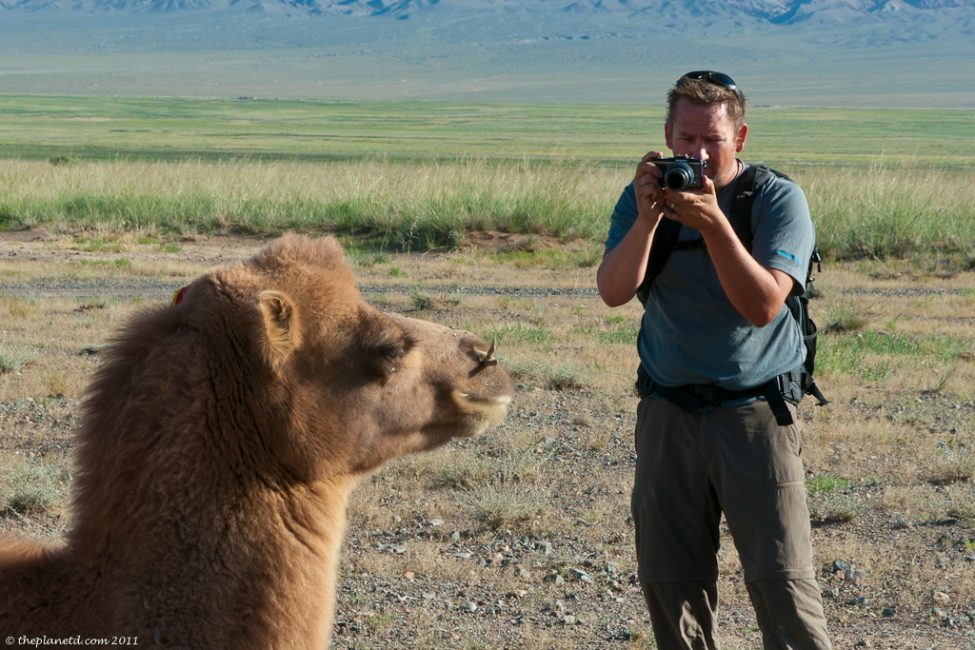
If you mainly travel to a beach resort, or a European City then construction and durability of the camera may be a little down the priority list. You could probably get way with a good Point and Shoot like the Sony RX 100 III or a prosumer level camera with a fixed lens. If you are going to be taking your camera into some pretty extreme situations like trekking through a desert, climbing mountains or trudging through a tropical rainforest, it needs to be able to withstand different temperatures, sand, precipitation and whatever you can throw at it. In this case, be sure to look at something that is durable, has reliable construction and can take a knock. The higher end DSLR’s and mirrorless cameras move away from plastic construction and are made of more durable materials. I dropped my Canon 5D MK2 in the Galapagos on a rock and cracked the body. If it were a lower end camera, it would have shattered into pieces but the tough body kept it all together and I still use it today.
Point and Shoot Cameras:
Sony RX100 V
Canon PowerShot G7 X II ($429)
Panasonic Lumix LX10 ($698)
3. What is the end product of your photos?
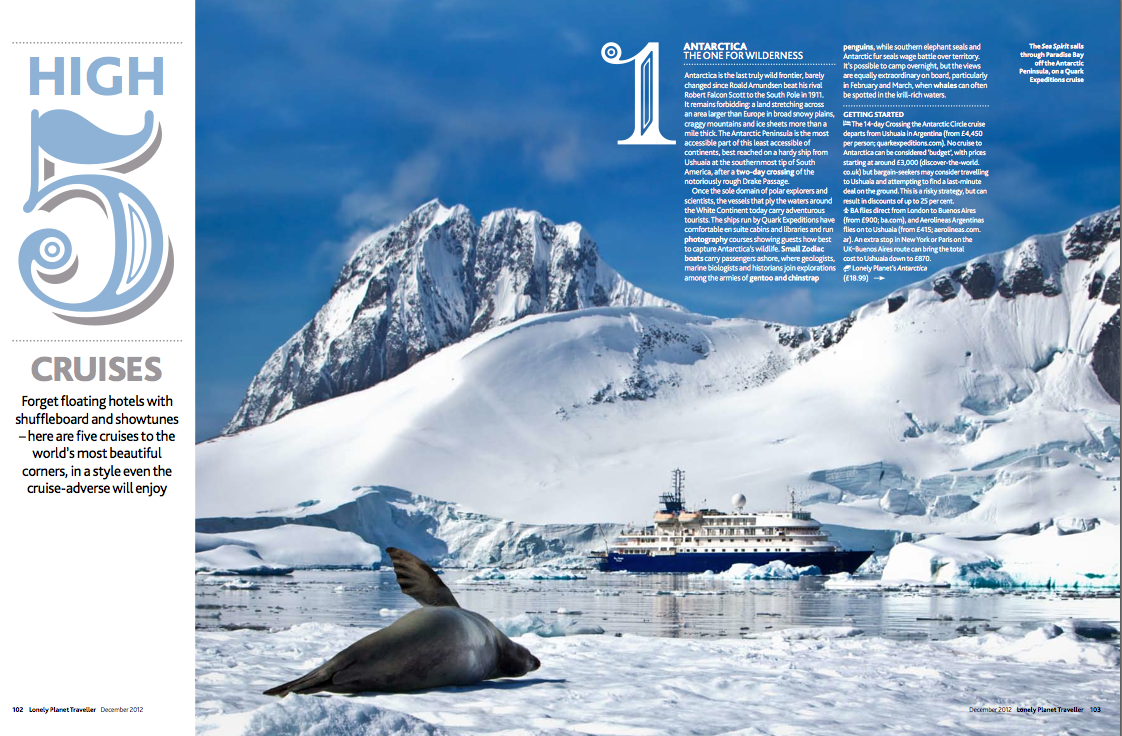
If you are using your photos for slideshows for your family and friends, the market is endless for economical cameras. You won’t need all of the bells and whistles of a higher end camera ie: RAW capture, continuous shooting, high ISO capability because you will probably never use them.
Maybe you are just looking for social media sharing and posting instagram photos where a smartphone might do the trick.
On the other hand if you are going to be printing hi-res prints for gallery shows, shooting sporting events and fast motion or if you take most of your photos in low light situations then you are probably going to want to go up the camera chain and spend more money on a higher end camera.
DSLR Cameras:
4. What do you photograph?
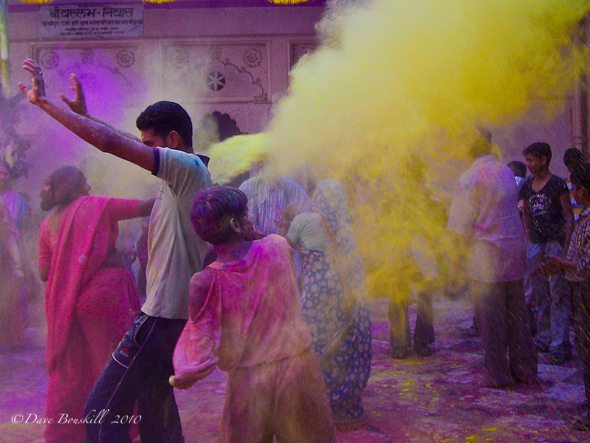
When searching for a camera for travel remember that different cameras are geared to different situations. For example; The person who loves to shoot spontaneously from the hip, like capturing festivals and candid moments will want to look for something that is more compact and quick and easy to use. Taking the time to set up the manual functions and change lenses could cause you to lose that moment in time. Read more: Holi Festival India
Action Cameras:
The person who loves to plan where they are going to be, has a good idea of shooting conditions and knows exactly what they want to capture will want to go with the feature rich DSLR instead of a Point-and-Shoot. The DSLR gives you the flexibility of interchangeable lenses and a host of user-defined controls that allow you to set the camera up for any particular situation.
If you shoot a lot of wildlife look into a crop sensor camera, it will extend the reach of your lenses. On the other hand if you are a landscape photographer you should be looking at a full frame camera.
5. What do you have to spend?
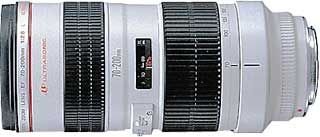 | 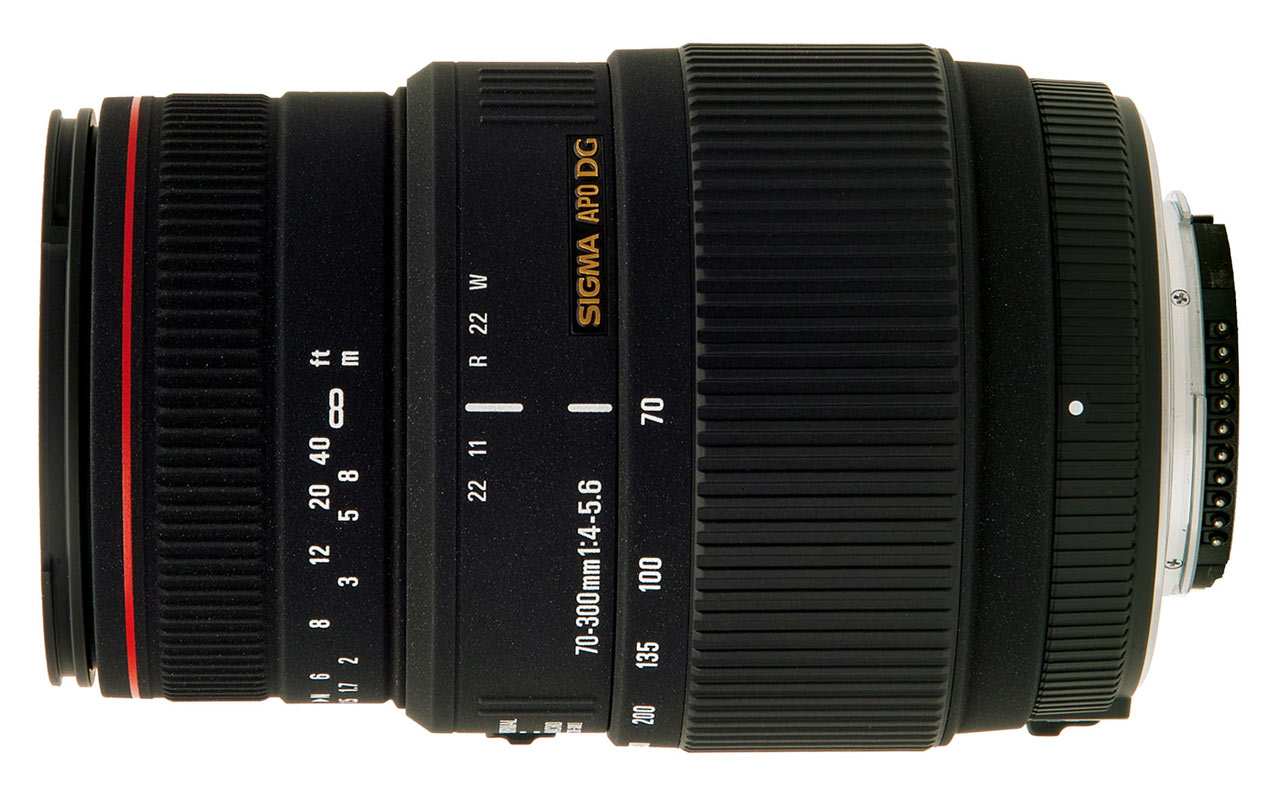 |
You make think this is an obvious one, but let me tell you I know many people that have thousands of dollars worth of equipment sitting unused at home that they are still paying for. So be realistic when going to your local camera store. Don’t be influenced by all the new and latest things on the shelves. The best thing is to be practical. If you are a pro (meaning you get paid for your photography) or semi-pro, by all means take into consideration that $5000 camera body and the $2000 lens. But if you are like 90% of the world you can find a camera that both fits your needs and your budget.
The Canon EF 70-200mm f/2.8L II IS is around $2500 while the Sigma 70 – 200 goes for $899
With your answers to these questions you are now armed with the knowledge you need to start looking into the right camera for your travel. Do you have any tips?
For a complete list of the camera gear I use for travel, check out our Travel Photography Gear Guide and if you are looking to take your photography to a whole new level check out The Best Landscape Photography Tutorial Ever

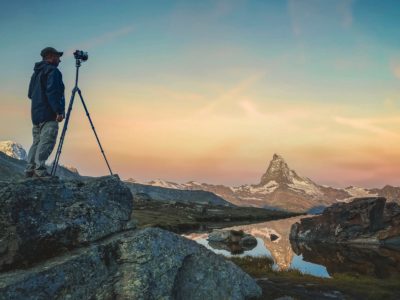
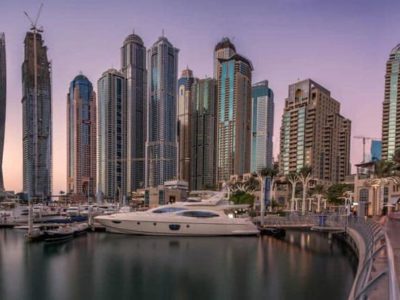
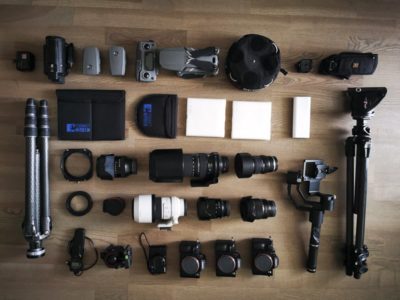
Great write up with tips. It is probably one of the best ones I have seen recently. Keep in mind that there is a reason why some lenses are cheaper than others. I know it might be more pricy, but the glass is better. Also, look at IS and other features before buying a lens. Kit lenses usually work for most people. I was doing lots of landscape photography and opted for Canon EF 24-105mm IS lens to help with landscape and some wildlife. For hiking, I usually take my smartphone and Canon Powershot to limit the weight I am carrying.
Great article,
I think intangibles are also important. Sometimes you are down to two or three cameras, and each might have something unique. For example, when I bought my first (and still current) DSLR, I was down to a Sone A33, Canon (something), and nikon (something). I got the Sony because it was the only camera at that price range with rapid shot (7/sec) and true HD video.
I must admit though that choosing a camera these days is WAY harder than it used to be. Do you use the DPreview website?
Jason – if you’re guarding it like Gollum guards his precious in Lord of the Rings then you’re going to attract attention to yourself. If you just casually carry, hold and use it then people won’t take notice.
I’ve never been to India but I didn’t have issue in Indonesia. If anything, people played up to it more.
Very importantly when travelling with any considerably expensive purchase however I would make sure it is insured. That way – even if the worst happens and someone grabs and dashes you’re not going to lose money. Just get into the habit of backing up the photos every night.
Thanks for the interesting post.
When you are carrying a bigger SLR camera, how do you feel walking around in countries like India and Indonesia?
In countries where being a westerner can attract interest, and where people are generally poorer, do you ever feel carrying an expensive looking camera can make life difficult?
Thanks for the advice, I am looking to upgrade my camera before my trip to Alaska!
Such a great point about not paying too much for stuff you don’t need. I went into B&H in New York hell bent on buying a pricey new lens. The salesperson actually talked me out of it, looked at my current kit and told me I had everything I needed. He was right. I ended up buying another prime lens but what I really needed to do was spend more time with my camera and fully explore its functionality. I always say it’s the user, not the camera.
Great article.
Solid advice.
I love my DSLR but lugging it around is not always fun. I’m slowly accepting that for a lot of things the quality of an iPhone is good enough to capture a moment. If you’re envisaging a day of something spectacular then that is of course when you pack the big lens.
My travel camera of choice is the iPhone or iPod touch. Yup, I’m a total mobile photography convert! There maybe limits to the iphone to shoot sports or anything from a distance if you need telephoto, but i was never that kind of photographer. i like to get up close and personal to my subjects. Plus the portability of the iphone can’t be beat. It’s always in my pocket. It connects to the web, so pics can be edited and posted immediately. This is HUGE. On top of all that, the camera on the iphone is surprisingly good!
Great post and all good considerations. When we stopped back in the US for two weeks back in November, we went through this thinking process. Our old DSLR was about 6 or 7 years old. We did not use all of the bells and whistles, and it was heavy to carry. We ended up with a Sony compact DSLR, and I have not looked back. It takes great quality photos, it is quick, has great auto features, a good zoom lens, and it is the easiest camera to switch back and forth between still and video. And, it is so small and lightweight in comparison to a traditional DSLR. Have you thought about a compact DSLR? What are your views?
When we started traveling full-time 6 years ago, my hubby and I both had Nikon D40’s with an 18-55 mm kit lens and one 55-200 mm lens shared between us. To our complete shock, those cameras produced 5 glossy travel magazine cover photos!!
Last year we upgraded to Nikon D5100 cameras with 18-55 kit lenses, but now my husband has a 55-200 mm lens and I have a 55-300 lens. To our utter joy, those cameras have published 3 more glossy travel magazine cover photos (one in print this month and two more due by summer)!!
The coolest thing is that these cameras take great photos. We are novices, but these great cameras cover our mistakes and produce beautiful images!!
Because we travel half the year by sailboat, we have an Olympus Tough underwater camera that can handle salt spray and capture images of fish when we snorkel.
If we couldn’t take photographs, our travels would be very different. Photography has given our travels a fun focus, and a sharing our images with followers has given us immense pleasure…
I don’t trust myself with really expensive cameras like this. I seem to always drop my camera, so I have to buy something cheap.
Thanks for sharing details around your camera gear. Always nice to read about what fellow travellers bring abroad. I also travel with a “high end” DSLR (5D Mark III) and a point and shoot. With a solid understanding of basic photography principles you can get amazing photos from an affordable little camera! For the DSLR I always travel with the 24-70mm, 16-35mm and 70-200mm 2.8 II. That said, on my most recent trip (to Africa) I brought a 100-400mm and used it quite a bit. I purchased it used before the trip and sold it for the same price upon my return. I love how these lenses hold their value!
Fantastic article! Are there any must-bring lenses that you will sacrifice for other things?
Hi Sharin,
Thanks for the question. I would look for a versatile lens for travel photography. It really depends on your budget. Both Canon and Nikon make some great all around lenses. I suggest to look in the 18-200mm range.For me a must bring lens would be a 24-105 or a 24-70mm they are both great walk around lenses. Also my 50mm 1.4 I don’t leave home without 🙂
Thank you so much for advice regarding a new camera. I have problem with my existing one so going to buy a new one. I will be visiting beaches and most probably will buy a point and shoot one.
I want to buy a new camera for travel this year. Your article is helpful to me, thank you for writing it. I didn’t make up my mind yet, but I’m surely on the right track.
This is the most frustrating thing about photography, buying the right camera in the first place. You can almost guarantee that you will buy one, spend a heap of money, then meet someone who has a slightly better lens or body for a fraction of the cost.
Great article! When I was looking for a new DSLR I had to think about size and weight of the camera for ease of travelling but also because I am vey petite and have very small hands. The Micro 4/3 fit the bill perfectly, especially after I purchased a pancake lens. Now I travel with both lenses and have both options…
Awesome post, and some great photography in there. Very straightforward advice here too – especially that the majority of people won’t need the $6,000 setup. BTW, where does Dave keep that lens when not on Safari??
Thanks for this nice tips Actually Next month I will buy New Camera for my traveling but I had so many tens about How to buy and which is perfect for me but After reading this post now I am tens free And I am sure I will buy Good Camera.
Sony RX100, I’ve been shooting extensively with this camera for each stills and video. In my opinion it’s the best compact ever designed.
Fantastic cameras! I wish I have the money to buy one of those cameras. I only use our point-and-shoot camera to capture special moments when traveling. Our smartphones serve as digital cameras too.
I have a DSLR and access to a bevy of nice lenses but they are worthless if I don’t carry them. For everyday shooting I use a Canon G12. It shoots RAW, has a reasonable sensor and, most importantly, it is easy to carry. It is in for cleaning and repairs in Bangkok right now. Can’t wait to get it back next week.
@SG I’ve have rented 35mm lenses for my Canon crop bodies, but the prices quite a bit steeper than the 50mm 1.8. They are decently fast lenses and tack sharp. If you are willing to try 3rd party lens manufacturers, the Tamron 11-18mm f4.5-5.6 is a great option though there is a touch of barrel distortion at the edges.
Do you have a recommendation for a wide angle lens for a crop-body DSLR? I’m tired of my 50mm 1.8 and want a wider frame, but with the crop body I wasn’t sure what focal length would be best.
Great advice! I would add another piece: if you start out with a prosumer crop sensor camera, spend the extra money when you're buying lenses to get one that will fit on both crop and full frame sensor cameras. Otherwise, if you ever decide to upgrade the body, you'll be stuck buying all new lenses too!
Hi, I don’t know (or even care), but I recently replaced my DSLR and a long lens (Canon 70-200mm) with my Samsung Note Phone (with Instagram) on my travels. Sacrilege, many people would say, but the ease of use, weight and portability has become a priority lately. Maybe age has caught up with me!
Great food for thought Dave. I had the Canon S95 and it was amazing! I always got compliments on my shots. It was absolutely superb in low light and it really made my photog skills look professional. I wanted to develop my skills so I upgraded to the entry level DSLR micro 4/3 Sony Nex F3, I also like to travel very light, and love the options for panoramic and enlarging my travel pics to post on my walls 🙂
Great choices Cristina. My favourite thing about coming home from travels is choosing photos to enlarge and put up on the wall. Right now we travel full time so we don’t have a home and only pop in and out of Deb’s parents, but they have our shots up on their walls, so it’s a nice reminder of where we’ve been.
Excellent post on camera buying. Many of these questions come to me from around the world. Tough to answer when you don’t know the persons experience or, what thy want to shoot.
Very good questions to ask. For me, one of the most important aspects was how I travel. I travel light so I don’t want to carry around a bunch of camera equipment. As a novice photographer I can get away with that and still take quality photos. Some of the stuff I want to shoot is wildlife and nature so point and shoot just won’t cut it. However, DSLR cameras are just too big. That’s why I went with the 4/3 camera like the Sony NEX 5N (they are now out with 7). It’s an upgrade over a point and shoot, did costs some money, travels light, gave me the option of purchasing a longer lens for shooting sporting events, and allowed me to shoot the stuff I want without being too bulky. Down the road I may need a full DSLR but I think more people should look into the 4/3 cameras for the DSLR like functionality, size, cost, and traveling light.
The 4/3 is a great choice. I travelled with one all through India, Nepal and Sri Lanka and captured some stunning shots.
I have been looking into the mirrorless cameras as well. I am seriously considering the Sony Alpha 5R and the Alpha 6. Any preference or advice? I would love to hear which camera you have and how you’ve found it! 🙂
Some great tips here Dave! We recently took the plunge and bought a second SLR for our trip, a 7D so we could shoot (and have more control over) our HD videos! A hassle to carry around no doubt, but wouldn’t change our decision at all!
Glad you are happy with your decision. One thing is for sure, it helps to build those back muscles carrying around the heavy camera bag 😉
That’s a great look at how to decide what kind of camera to get. Once you have that figured out, the game is only half over. I have written a post that I think helps choose the actual model. Check it out at: http://www.lengthytravel.com/the-best-digital-camera-a-buying-guide/
Thanks for sharing Jeff. Cheers.
This has been an ongoing debate as to which camera to buy. While the price tag discourage the spending, taking quality photos make sense. But I guess it has to do with what we do with the photo once we take it. Great tips Dave!
So true, it all depends on what you are doing with the photos when you get home.
Nice tips about usage of Camera. it is very important to every travelers. Now i am using Apple ipod for the photograph when in travel. Here after i buy a quality camera fulfill your features…
Thanks
For P&S, we like the Canon S100. It’s served well for our video recording purposes too. We finally get to share our montage in a few days!
Fantastic, looking forward to seeing it.
We’ve just been through this process, as the wife decided she wanted to move up in the chain of camera ownership! We had some advice from a local camera shop, and then hit the streets to fid the best price. It probably wasn’t the most comprehensive research we could have done, but she’s pretty happy with the results: a Nikon D5100 DSLR, with a Tamron 18-270mm lens! It was the best combination we could find, although she is now quite daunted by the bewildering array of settings the camera has! As luck would have it, Nikon brought out the 5200 just in time for Christmas – meaning we were able to get a great bargain on the 5100, which differs only in the resolution – 16mp rather than… wait for it… 24!! Quite who needs a 25 mega-pixel camera – unless they’re shooting for billboards – is beyond me. But it worked out well in the end, with a lucky find of the lens on eBay and the discounted body giving us the whole package for $800! Saved over $400 on the original quoted price. So the only bit of advice I can contribute is, if you can stand to wait, most major manufacturers update their line once a year. If you find out when the new fancy model is coming out, you may be able to grab a bargain – as long as you don’t mind using ‘obsolete’ technology! :0)
Smartphones make a great backup camera when traveling. You can often take pictures under your arm without anyone noticing and they’re small. My inspire has an 8mp camera that works great for when I don’t wanna lug around my big camera or I don’t want to alert potential thieves to my gear.
Thank you so much for the advice! I’m looking to buy a new camera in the near future and I never know which one to buy. I don’t want to end up buying one I regret buying after a few years (which is what happened).
This is great advice! We just upgraded our DSLR and several of our lenses. We also just got a new underwater case for our DSLR since our underwater camera bit the dust in Iceland when it didn’t like the freezing water we were snorkeling in.
love the advice on the different use of cameras…very relevant to what i am currently looking for…on the move seems the best option for me….
That’s a real deal big boy lens in that first picture. I am going to share this with my Mom. She travels a lot so this will be useful for her. Good work!